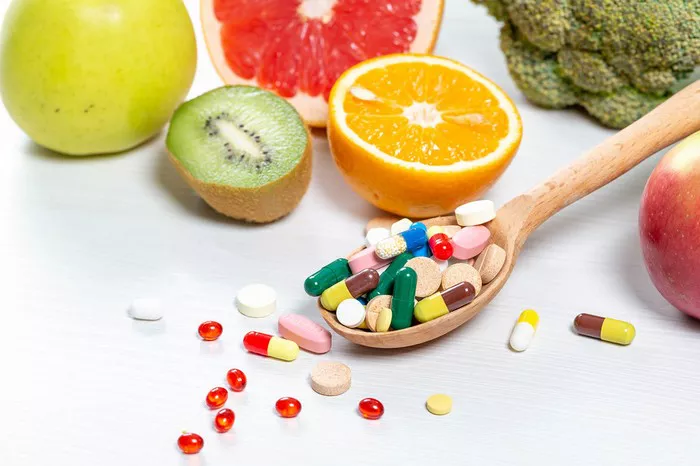The ketogenic diet, or keto diet, has gained widespread popularity in recent years for its potential health benefits and effectiveness in promoting weight loss. This low-carbohydrate, high-fat diet has been shown to help control blood sugar levels, reduce inflammation, and support weight loss by inducing a state of ketosis, where the body burns fat for fuel instead of carbohydrates. However, like any restrictive diet, the keto diet may increase the risk of nutrient deficiencies if not properly planned. In this article, we will explore the essential vitamins to consider when following a keto diet and how to ensure optimal nutrient intake for overall health and well-being.
Understanding the Keto Diet
The ketogenic diet is characterized by a significant reduction in carbohydrate intake, typically to less than 50 grams per day, and an increase in dietary fat consumption to induce ketosis. In ketosis, the body produces ketones from fat stores, which serve as an alternative fuel source for the brain and body. This metabolic state is believed to offer various health benefits, including weight loss, improved energy levels, and better blood sugar control.
Potential Nutrient Deficiencies on Keto
While the keto diet can be highly effective for weight loss and metabolic health, it may increase the risk of certain nutrient deficiencies due to its restrictive nature. Some vitamins and minerals are primarily found in carbohydrate-rich foods that are limited on the keto diet, such as fruits, starchy vegetables, and whole grains. Additionally, the high fat content of the diet may interfere with the absorption of certain fat-soluble vitamins, further contributing to potential deficiencies. Common nutrient deficiencies associated with the keto diet include:
Vitamin C: Found in fruits and vegetables, vitamin C is an essential antioxidant that supports immune function, collagen production, and wound healing.
Vitamin B1 (Thiamine): Thiamine is found in whole grains and fortified cereals and plays a crucial role in energy metabolism and nerve function.
Vitamin B9 (Folate): Folate is abundant in leafy greens, legumes, and fortified grains and is important for DNA synthesis and cell growth.
Vitamin K: Found in leafy greens and cruciferous vegetables, vitamin K is essential for blood clotting and bone health.
Magnesium: Magnesium-rich foods include nuts, seeds, leafy greens, and whole grains. Magnesium is involved in over 300 enzymatic reactions in the body and is crucial for muscle function, nerve transmission, and bone health.
Potassium: Potassium is abundant in fruits and vegetables, particularly bananas, sweet potatoes, and leafy greens. It plays a vital role in fluid balance, muscle contractions, and nerve function.
Essential Vitamins for Keto
While it’s possible to obtain most essential vitamins and minerals from whole foods on the keto diet, some individuals may benefit from supplementation to ensure adequate intake, especially if their diet is limited in variety or quantity. Here are some key vitamins to consider supplementing on the keto diet:
1. Vitamin D
Vitamin D plays a crucial role in bone health, immune function, and mood regulation. While the body can produce vitamin D through sun exposure, many people may have inadequate levels, particularly those who live in northern latitudes or spend limited time outdoors. Since vitamin D is found in few food sources, supplementation may be necessary, especially during the winter months or for individuals with limited sun exposure.
2. Vitamin B12
Vitamin B12 is essential for nerve function, DNA synthesis, and red blood cell production. It is primarily found in animal products such as meat, fish, eggs, and dairy, making it challenging for vegetarians and vegans to obtain adequate levels from diet alone. Supplementation or fortified foods may be necessary for individuals following a plant-based keto diet.
3. Omega-3 Fatty Acids
Omega-3 fatty acids, found in fatty fish such as salmon, mackerel, and sardines, are important for heart health, brain function, and inflammation regulation. While fatty fish can be included in the keto diet, supplementation with fish oil or algae-based omega-3 supplements may be beneficial, especially for individuals who do not consume fish regularly.
4. Electrolytes (Sodium, Potassium, Magnesium)
Electrolytes play a crucial role in fluid balance, muscle function, and nerve transmission. On the keto diet, electrolyte imbalances can occur due to increased fluid loss and reduced carbohydrate intake. To prevent symptoms such as muscle cramps, fatigue, and headaches, it’s essential to maintain adequate electrolyte levels through diet and supplementation. Adding salt to meals, consuming potassium-rich foods such as avocados and leafy greens, and supplementing with magnesium citrate or glycinate can help maintain electrolyte balance.
5. Vitamin E
Vitamin E is an antioxidant that protects cells from damage caused by free radicals and supports immune function. While vitamin E is found in nuts, seeds, and vegetable oils, it may be challenging to obtain adequate levels from diet alone, especially on a low-fat keto diet. Supplementation with a natural vitamin E supplement may be beneficial for some individuals, particularly those with limited intake of vitamin E-rich foods.
6. Vitamin A
Vitamin A is essential for vision, immune function, and skin health. While vitamin A is found in animal products such as liver, eggs, and dairy, it is also found in plant foods as beta-carotene, which is converted to vitamin A in the body. Including a variety of colorful fruits and vegetables such as carrots, sweet potatoes, and spinach in the keto diet can help ensure adequate intake of vitamin A.
7. Vitamin C
Vitamin C is a powerful antioxidant that supports immune function, collagen production, and wound healing. While many vitamin C-rich foods are limited on the keto diet, such as citrus fruits and berries, there are still plenty of keto-friendly sources, including bell peppers, broccoli, and Brussels sprouts. Including these foods in the diet or supplementing with vitamin C can help ensure adequate intake.
8. Zinc
Zinc is essential for immune function, wound healing, and DNA synthesis. While zinc is found in a variety of foods, including meat, shellfish, nuts, and seeds, it may be challenging to obtain adequate levels from diet alone, especially for vegetarians and vegans. Supplementation with zinc picolinate or zinc gluconate may be beneficial for some individuals, particularly those with limited intake of zinc-rich foods.
9. Iron
Iron is essential for oxygen transport, energy production, and immune function. While iron is found in animal products such as red meat, poultry, and fish, it is also found in plant foods such as legumes, tofu, and leafy greens. However, the type of iron found in plant foods (non-heme iron) is less readily absorbed than the type found in animal products (heme iron). Including vitamin C-rich foods in meals can enhance the absorption of non-heme iron. For individuals at risk of iron deficiency, supplementation may be necessary under the guidance of a healthcare provider.
10. Vitamin K2
Vitamin K2 is important for bone health, heart health, and blood clotting. While vitamin K1 is abundant in leafy greens, vitamin K2 is primarily found in fermented foods such as natto, cheese, and sauerkraut. Supplementation with vitamin K2 as MK-7 may be beneficial for some individuals, particularly those with limited intake of vitamin K2-rich foods.
Conclusion
While the ketogenic diet offers numerous health benefits, it is important to pay attention to nutrient intake to prevent deficiencies and promote overall health and well-being. By including a variety of nutrient-dense foods in the diet and supplementing as needed, individuals can optimize their vitamin intake and support their health goals on the keto diet. Consulting with a healthcare provider or registered dietitian can provide personalized guidance on supplementation and ensure nutritional adequacy while following a keto diet.
[inline_related_posts title=”You Might Be Interested In” title_align=”left” style=”list” number=”6″ align=”none” ids=”8728,8574,8569″ by=”categories” orderby=”rand” order=”DESC” hide_thumb=”no” thumb_right=”no” views=”no” date=”yes” grid_columns=”2″ post_type=”” tax=””]
































